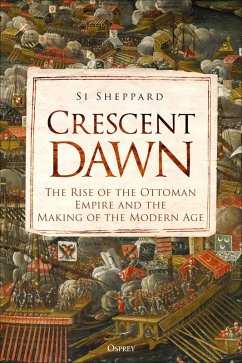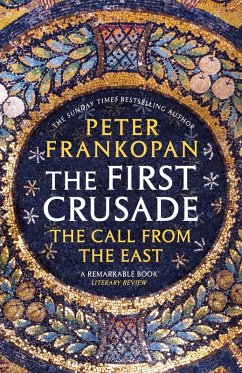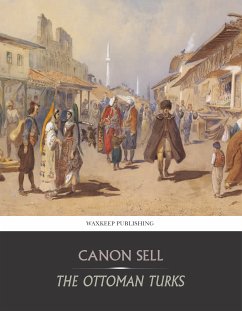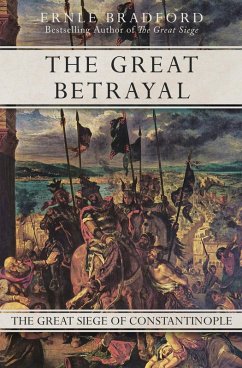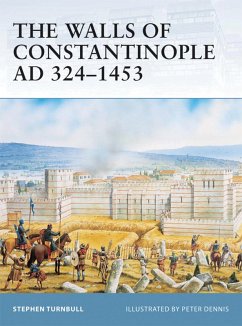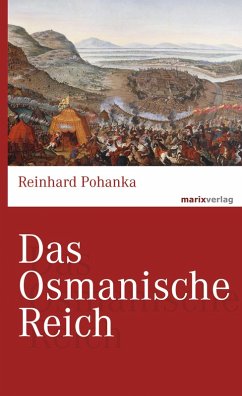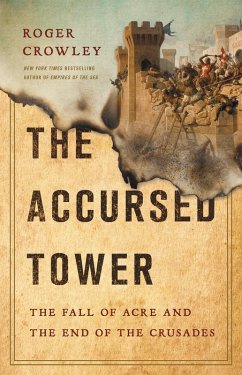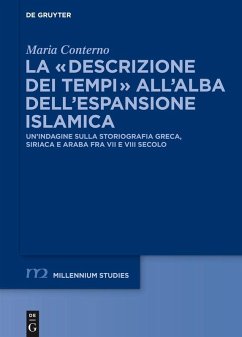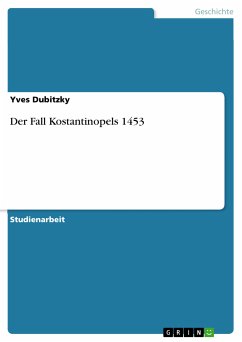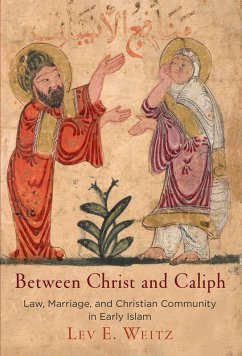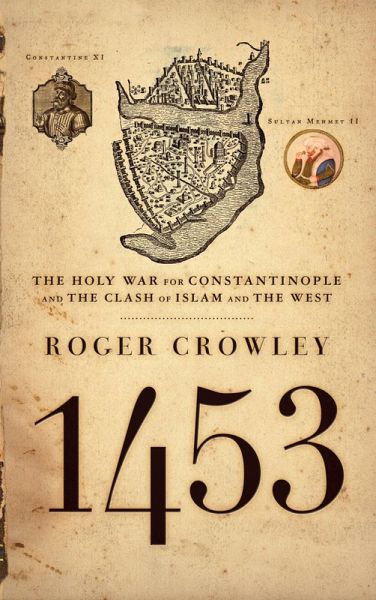
1453 (eBook, ePUB)
The Holy War for Constantinople and the Clash of Islam and the West

PAYBACK Punkte
0 °P sammeln!
A gripping exploration of the fall of Constantinople and its connection to the world we live in today. The fall of Constantinople in 1453 signaled a shift in history and the end of the Byzantium Empire. Roger Crowley's readable and comprehensive account of the battle between Mehmet II, sultan of the Ottoman Empire, and Constantine XI, the 57th emperor of Byzantium, illuminates the period in history that was a precursor to the current conflict between the West and the Middle East. For a thousand years Constantinople was quite simply "the city": fabulously wealthy, imperial, intimidating - and C...
A gripping exploration of the fall of Constantinople and its connection to the world we live in today. The fall of Constantinople in 1453 signaled a shift in history and the end of the Byzantium Empire. Roger Crowley's readable and comprehensive account of the battle between Mehmet II, sultan of the Ottoman Empire, and Constantine XI, the 57th emperor of Byzantium, illuminates the period in history that was a precursor to the current conflict between the West and the Middle East.
For a thousand years Constantinople was quite simply "the city": fabulously wealthy, imperial, intimidating - and Christian. Singlehandedly it blunted early Arab enthusiasm for Holy War; when a second wave of Islamic warriors swept out of the Asian steppes in the Middle Ages, Constantinople was the ultimate prize: "The Red Apple." It was a city that had always lived under threat. On average it had survived a siege every forty years for a millennium - until the Ottoman Sultan, Mehmet II, twenty-one years old and hungry for glory, rode up to the walls in April 1453 with a huge army, "numberless as the stars."
1453 is the taut, vivid story of this final struggle for the city, told largely through the accounts of eyewitnesses. For fifty-five days a tiny group of defenders defied the huge Ottoman army in a seesawing contest fought on land, at sea, and underground. During the course of events, the largest cannon ever built was directed against the world's most formidable defensive system, Ottoman ships were hauled overland into the Golden Horn, and the morale of defenders was crucially undermined by unnerving portents. At the center is the contest between two inspirational leaders, Mehmed II and Constantine XI, fighting for empire and religious faith, and an astonishing finale in a few short hours on May 29, 1453 - a defining moment for medieval history.
1453 is both a gripping work of narrative history and an account of the war between Christendom and Islam that still has echoes in the modern world.
For a thousand years Constantinople was quite simply "the city": fabulously wealthy, imperial, intimidating - and Christian. Singlehandedly it blunted early Arab enthusiasm for Holy War; when a second wave of Islamic warriors swept out of the Asian steppes in the Middle Ages, Constantinople was the ultimate prize: "The Red Apple." It was a city that had always lived under threat. On average it had survived a siege every forty years for a millennium - until the Ottoman Sultan, Mehmet II, twenty-one years old and hungry for glory, rode up to the walls in April 1453 with a huge army, "numberless as the stars."
1453 is the taut, vivid story of this final struggle for the city, told largely through the accounts of eyewitnesses. For fifty-five days a tiny group of defenders defied the huge Ottoman army in a seesawing contest fought on land, at sea, and underground. During the course of events, the largest cannon ever built was directed against the world's most formidable defensive system, Ottoman ships were hauled overland into the Golden Horn, and the morale of defenders was crucially undermined by unnerving portents. At the center is the contest between two inspirational leaders, Mehmed II and Constantine XI, fighting for empire and religious faith, and an astonishing finale in a few short hours on May 29, 1453 - a defining moment for medieval history.
1453 is both a gripping work of narrative history and an account of the war between Christendom and Islam that still has echoes in the modern world.
Dieser Download kann aus rechtlichen Gründen nur mit Rechnungsadresse in A, B, BG, CY, CZ, D, DK, EW, E, FIN, F, GR, HR, H, I, LT, L, LR, M, NL, PL, P, R, S, SLO, SK ausgeliefert werden.




